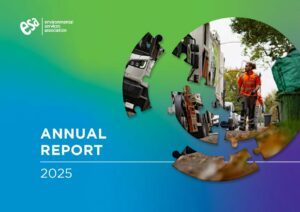Patrick Brighty analyses the recently published findings of the PAC inquiry into the Government’s programme of resources and waste reforms, and how they echo what industry has been calling for.
On Friday last week (1st December), the Public Accounts Committee published the findings of its much anticipated inquiry into the Government’s programme of resources and waste reforms. Whilst the report rightly highlighted the shortcomings of Defra’s initial approach to setting up the Collection and Packaging Reforms (CPR), we welcomed Defra’s commitment to rectifying previous weaknesses and to running the reforms as a cohesive integrated programme going forward.
We now need to take the learnings from the report and move into the implementation phase of the CPR. Yet, as the report outlines, the sector needs ‘more certainty, clarity and granularity’ to inform the infrastructure investments required to deliver on Defra’s ambitious agenda. First, we need the finalised pEPR regulations to come into force. As part of this process, government must ensure that the assessments of LA Efficient and Effective services both provide a level playing field between in house and outsourced services and drive quality of output. Defra must also provide guidance on what constitutes a Material Facility under the Amended MF Regs. Without this, the sector cannot begin the process of adapting existing facilities and, where necessary, acquiring new facilities to accommodate the enhanced sampling and reporting regime.
Interestingly, the report fails to pick up on the publication of the Simpler Recycling response – an omission which clearly underlines that parliamentary scrutiny has been overtaken by the pressure to provide clarity. Overall, we welcome the visibility provided by Simpler Recycling, particularly on the material streams which will be mandatory to collect from households and businesses. Alongside the publication of the finalised legislation, our members will now need time to work with their local authority customers and business waste producers in England to determine collection systems, and make the corresponding process and infrastructure changes required in England’s MRFs.
Furthermore, the report justifiably questioned the purported benefits of a DRS scheme – more than 90% of the scheme’s benefits are based on the estimated societal value of reducing litter. Disappointingly, however, the report failed to call for a delay to the implementation of a DRS. This would have given Government the breathing space to bed in pEPR and Simpler Recycling, and then subsequently tailor a DRS to complement the rest of the system and target any remaining challenging materials. It would also have afforded Government the opportunity to formally review how to minimise UKIM discordances in future. The sector now requires the DRS statutory instrument to be put in place, alongside a revised implementation timeframe, to fully cement policy certainty and inform infrastructure investment.
As we move into the delivery phase, government must be careful to ensure that the implementation of the CPR evolves our waste ecosystem rather than fragmenting it. Otherwise, it will only bring added consumer confusion, cost and complexity. Resolving the outstanding policy uncertainty – whilst being mindful to minimise wider ecosystem impacts – will unlock the £10 billion investment that our members have set aside to deliver on Government’s ambitious programme of waste reforms.




